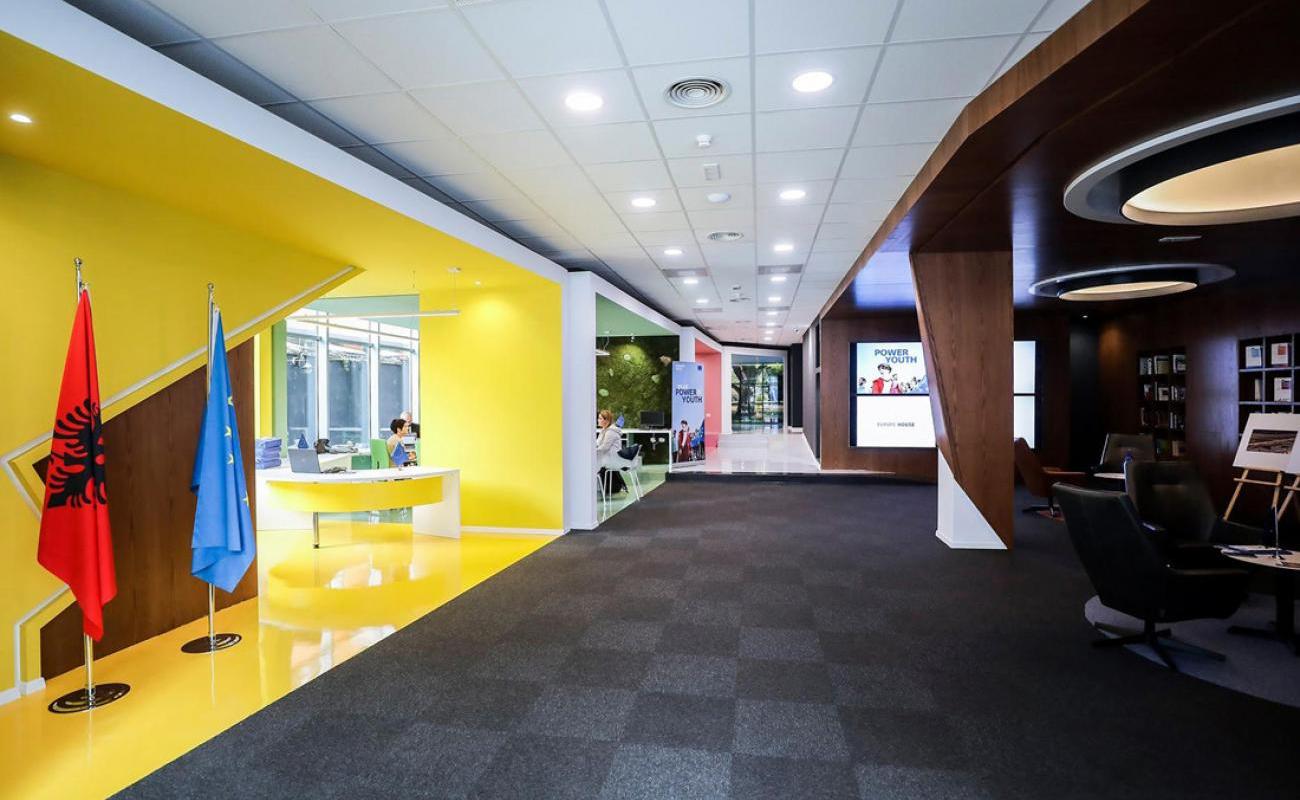Europe Is Here 2.0: EU Delegation launches campaign on its financial support to Albania’s agricultural and rural development sector

The Delegation of the European Union to Albania launched today its communication campaign on how the European Union is supporting Albania’s agricultural and rural development sector as the country advances towards becoming a Member State and Albanians becoming future EU citizens.
Building on the wider Europe Is Here campaign, this new wave will inform citizens about EU's financial assistance to Albania - which amounts to a total of €100 million every year - with a special focus on how the country’s youth, farmers, agri-business entrepreneurs are benefiting from EU assistance through the IPARD programme.
In the presence of the EU Ambassador Luigi Soreca, Minister of Agriculture and Rural Development Frida Krifca, university professors and students, the launching event of Europe Is Here 2.0 campaign on agriculture and rural development took place at the Fan Noli University in Korça.
In his remarks, Ambassador Soreca said: Agriculture is a key area of support for the EU in Albania. The reasons are clear. Not only does agriculture have a special part in the history and identity of Albania, but almost 40% percent of the Albanian population live in rural areas, and almost half of the Albanian workforce works in agriculture and connected sectors. Recognising the importance of this sector, in just the last 5 years, since 2018, the EU has made available over €70 million euro to support rural economy, agribusiness, food safety, veterinary and fisheries. The size of this investment qualifies the EU – by far – as the biggest supporter of the Albanian agro-food sector.”
Minister Krifca said: “I joined today upon the invitation of Ambassador Soreca to say that Europe is here, and I thank him for starting this campaign in Korça. We have plenty of success stories in this district with about 25 percent of programme funding. Glad that the first step of the campaign started at ‘Fan Noli’ University, where many of the students present will be the experts of tomorrow who will serve agriculture. Nothing can be done well without knowledge, therefore your contribution, dear students, will be very important. We aim to be able to compete in the European market through quality.”
EU support to the agriculture and rural development in Albania is delivered mainly through the IPARD programme implemented on behalf of the EU by the Ministry of Agriculture and Rural Development and its structures. Support primarily takes the form of direct grants. Since 2018, more than 400 farmers and agribusinesses in Albania have been awarded EU grants under IPARD with a combined value of EUR 50 million.
For detailed information about the EU support to the agricultural sector visit www.euprojects.al(link is external), which gathers information on past and ongoing projects funded by the EU in Albania. For each project, the website provides information about the implementing partners, beneficiaries, objectives, actions and expected results. The database has a user-friendly interface and the search function allows the search of projects by sector or any keyword.
To learn more about the IPARD programme, the instrument for pre-accession assistance for rural development focusing on rural areas and the agri-food sectors of countries in the process of joining the EU, visit www.ipard.gov.al(link is external)
EU Ambassador Soreca’s full remarks: bit.ly/34E1RFU(link is external)
Facts and figures on EU support to agriculture in Albania:
-
More than €70 million of contributions from the EU to the agricultural sector in the last 5 years.
-
1,000 applications received.
-
400 Albanians farmers and agri-businesses have benefitted from the IPARD programme through grants that aim to upgrade and modernise their capacities in order to improve competitiveness and create new jobs for rural youth.
-
The fourth call for applications under IPARD is still open and it focuses on farm diversification and business development. It aims to support nature and rural tourism as well as handicrafts and manufacturing industry.
